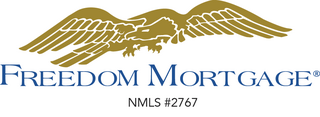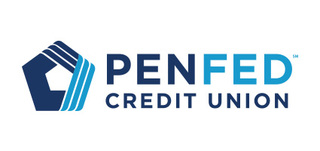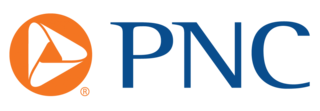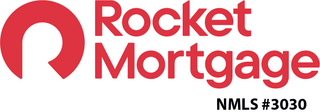6 Best Cash-Out Refinance Lenders of 2026
Cash-out refinancing main takeaways
- Rising home values have led to significant equity gains over the past few years. As of 2025, homeowners hold an aggregate of over $30 trillion.
- A cash-out refinance allows you to tap into your home equity by taking out a new, larger mortgage, paying off the old loan and keeping the difference.
- You can use the money from a cash-out refinance for any purpose, including making home repairs or paying off high-interest debt.
- You may have to pay a higher monthly payment if the interest rate on your cash-out refi exceeds your current rate.
Since 2016, Money’s editorial team has researched and compared various companies offering home equity lending products. Our industry analysis considers the scope of vendor offerings, affordability, qualification requirements, financial stability, and customer reviews. We aim to provide our readers with the most useful and accurate recommendations.
Why Trust Us?
Our editors and writers independently reviewed and evaluated mortgage lenders who provide cash-out refinancing loans to ensure our content is correct and guided by editorial integrity. Read the full methodology to learn more.
- Reviewed more than 20 providers
- 1,000+ hours of research
- Based on 14 data points, including fees, loan terms, lender requirements and loan limits.
Our top picks for the best cash-out refinance lenders of 2026
- Carrington Mortgage Services - Best Bad Credit Cash-Out Refinance Lender
- Freedom Mortgage - Best FHA Cash-Out Refinance Lender
- NASB - Best VA Cash-Out Refinance Lender
- PenFed Credit Union - Best Credit Union Cash-Out Refinance Lender
- PNC Bank - Best Multiple Loan Option Cash-Out Refinance Lender
- Rocket Mortgage - Best Online Cash-Out Refinance Lender
Best cash-out refinance lenders reviews
- Offers refinance programs with flexible credit requirements
- Offers refinancing to those with recent history of bankruptcy or foreclosure
- Flexible refinance loans don't require private mortgage insurance
- Doesn't directly provide loans in North Dakota and Massachusetts
- Must speak with a loan officer to pre-qualify and complete application
Why we chose it: Carrington Mortgage Services (NMLS #2600) offers three specialized refinance loans that allow borrowers with credit scores as low as 550 to qualify.
Carrington's Flexible Advantage Refinance, Flexible Advantage Plus, and Prime Advantage loans help borrowers with lower credit scores and past negative credit activity (e.g., bankruptcy, foreclosure) access refinancing options they may not qualify for with traditional lenders.
The Flexible Advantage program allows for credit scores as low as 550 and up to $250,000 in cash-out, while the Flexible Advantage Plus program allows for credit scores as low as 620 and up to $500,000 in cash-out. The Prime Advantage program has the highest credit score requirement of 660, but allows up to $750,000 in cash-out.
All of these programs will take borrowers with histories of bankruptcy, foreclosure, short sale and late payments (bankruptcy and foreclosure must be 36 months out to qualify for Flexible Advantage). They also don't require mortgage insurance, making them more affordable for some borrowers.
In addition to these programs, Carrington offers cash-out refinances for conventional, FHA and VA loans, accepting credit scores as low as 500.
- Low minimum credit score requirement for FHA loans
- Several customer service options (online, phone and in-branch)
- Website doesn't provide much information about lender fees or rates
Why we chose it: With a minimum credit score requirement of 550 for its Federal Housing Administration (FHA) cash-out refinance loans and no required mortgage insurance, Freedom Mortgage (NMLS #2767) is a great choice for FHA borrowers looking for a cash-out refinance.
Freedom Mortgage has a maximum LTV of 80% and its minimum credit score requirement is significantly lower than the 580 to 620 minimum required by most other mortgage lenders, allowing more borrowers to qualify for a loan. The company's conventional cash-out refinance loan has a maximum LTV of 80%, a minimum credit score requirement of 620 and no private mortgage insurance if you retain 20% equity.
You can use Freedom's cash-out refinance calculator to get an estimate of how much you can qualify for. Although the lender's site does not specify exact refinancing costs, you can expect to pay between 2% and 6% of the loan amount.
- Access up to 100% of home equity for VA cash-out refinances
- No lender fees for VA loans
- Requires minimum loan amount of $175,000
- Little information provided about lender fees on non-VA loans
Why we chose it: With no lender fees on its VA cash-out refinances and the ability to convert up to 100% of your home's equity into cash, NASB (NMLS #400039) is an excellent choice for veterans looking to refinance.
Founded nearly 100 years ago, North American Savings Bank (NASB) is a reliable option for many borrowers looking to refinance their mortgage. NASB offers cash-out refinances for conventional loans, FHA loans and VA loans as well.
On the downside, the NASB website provides little information about its minimum credit score and debt-to-income ratio requirements for its refinance loans. The lender's cash-out refinance loan also requires a minimum loan amount of $175,000. (The lender makes exceptions for borrowers living in Kansas City, where the company is headquartered.)
- Offers refinancing for VA and conventional loans
- Strong customer reviews
- Low interest rates
- Lacks detail on credit score requirements
- Credit union membership required
Why we chose it: Credit unions can be excellent lenders. Nonprofit organizations often offer lower rates than other lenders. While some credit unions have limited membership requirements, PenFed's membership criteria are broad: anyone can join by opening a savings account and making a $5 deposit.
PenFed's cash-out and VA streamline refinance loans have some of the lowest rates on the market for well-qualified borrowers. Plus, the lender has strong customer reviews, with many customers praising the credit union's responsiveness and customer service.
You can use PenFed's loan estimator tool to obtain a ballpark figure for how large a loan you can qualify for, and you can apply for the refinance directly online.
- Low minimum credit score
- Multiple cash-out options
- Easy to get a custom rate quote
- Limited branch locations
- Slightly elevated closing costs
Why we chose it: PNC Bank (NMLS #446303) offers a variety of cash-out refinance mortgage products, including conventional, jumbo, VA, and FHA loans, as well as PNC's affordable lending options.
Some borrowers may also qualify for the lender's Closing Cost Assistance program, which can include a 1% pricing promotion in the form of discount points and grants ranging from $5,000 to $15,000. including options for conventional, jumbo, VA and FHA loans. Its conventional loan cash-out refinancing is available for primary homes, secondary homes and investment properties.
Interested borrowers can easily get a custom rate quote for their cash-out refinance by entering their home value, loan amount, credit score range and ZIP code into a calculator on the lender's website.
The bank has limited branch locations and only allows up to 80% LTV for conventional and jumbo cash-out refinances. While this may not suit everyone’s needs, the LTV restriction aligns with many competitors' offerings.
- Low credit score
- Fast online pre-approval process
- No physical branches
- Little information listed about lender fees
Why we chose it: With a fast online application process and extensive online resources, Rocket Mortgage (NMLS #3030) is a strong choice for borrowers seeking a fully digital experience.
Rocket offers cash-out refinancing for conventional, FHA, and jumbo loans.
The online pre-approval process is quick and easy to complete, helping borrowers determine how much equity they can access from their home early in the process. Closing costs can range from 2% to 6%.
While Rocket Mortgage doesn’t have physical branches, its loan products are available through affiliated brokers for in-person service.
Other cash-out refinance lenders we considered
While the following lenders didn't make our top five list, they may still be worth considering for a cash-out refinance.
SoFi
- Works with those who are self-employed or with non-traditional sources of income
- Almost completely online cash-out refinance process
- Discounts for existing Sofi members
- Limited loan options
- Must sign up to see rates
While it's best known for student loan refinancing, SoFi (NMLS #696891) also offers cash-out refinancing for conventional loans, including those for self-employed borrowers or those with non-traditional sources of income. Unfortunately, the lender doesn't offer refinancing options for government loans (e.g., FHA, VA).
New American Funding
- Offers cash-out refinancing and HELOCs
- Low credit score
- Mostly online process
- Limited information about lender fees
- Few details about loan requirements
New American Funding (NMLS #6606) is a good option for those with experience in the mortgage process and comfortable navigating an online session. The lender offers a wide range of refinancing options. Additionally, the company doesn't disclose many of its fees until after a loan application is submitted, which can be a concern for those who want all the details up front.
What you need to know about cash-out refinancing
Refinancing your home can be complicated and time-consuming, full of jargon and paperwork. To help you understand the key terms and processes, we have compiled the following refinancing cash-out guide.
What is a cash-out refinance?
A cash-out mortgage refinance allows you to access a portion of your home equity as cash and use it for other purposes. Home equity refers to the difference between the amount you still owe on your mortgage and the value of your property. In other words, it's the amount of money you could potentially get if you sold your house today. You build equity over time by consistently making your monthly mortgage payments.
Cash-out refinancing for government-backed loans
If you have a mortgage through a government-backed program, such as FHA or VA loans, there are specialty cash-out refinance options:
- FHA cash-out refinance: Through the FHA cash-out refinance program, you can refinance an existing FHA loan or a conventional mortgage. This option can be a good approach if your credit score is on the lower end since the FHA program has lower-than-usual credit score minimums.
- VA cash-out refinance: A VA refinance loan allows you to refinance an existing VA loan, or you can convert a non-VA mortgage into a VA-backed one.
Although cash-out refinancing is available for FHA and VA loans, it's not available for USDA loans.
The funds from a cash-out refi are generally tax-free and can be used for anything, including debt consolidation, home improvement projects, college tuition, major purchases or even investing.
How does a cash-out refinance work?
When you apply for a cash-out refinance, you take out a new loan that is bigger than your existing mortgage balance, and the difference between the two loans is given to you in cash. The amount of cash you can get depends on the value of your home, your credit score, how much equity you have built up and the specific lender's maximum loan-to-value (LTV) ratio.
In general, you'll need a higher credit score for cash-out refinancing than for other loan types. While you can qualify for cash-out refinancing with government-backed loans with a lower score, conventional loan refinancing will usually require a credit score of 640 or higher.
Many lenders have a maximum LTV of 80%-90%. For example, if your home is valued at $500,000, you still owe $100,000 on your mortgage and the lender's maximum LTV ratio is 80%, you could take out a new mortgage of up to $300,000 (($500,000 X 80%) - $100,000).
Cash-out refis are typically offered as fixed-rate mortgages, although you may find a lender offering an adjustable-rate mortgage as well.
How to find the best cash-out refinance lender
Finding the right lender for a cash-out refinance can be challenging, so it's important to do your research and shop around to find the best rates and terms. Be sure to consider different lenders, including traditional banks, credit unions and online lenders. The following section outlines some of the main steps you take when conducting your search.
1. Research and compare multiple lenders
The best way to find the right lender for your cash-out refinance is to compare multiple lenders side by side. Look at factors such as the types of loans available, fees and closing costs. You should also compare customer reviews and ratings to see what past customers say about each lender.
2. Evaluate loan interest rates and repayment terms
When considering any loan, you should pay special attention to the interest rate and repayment terms. A higher interest rate means you will pay more in total over the life of the loan, so it's important to compare lenders and choose one with a competitive rate.
The repayment term is the length of time it takes to repay the loan. In some cases, it may be helpful to extend the repayment term to lower your monthly mortgage payments, while in others, it's better to keep the term as short as possible. Make sure to evaluate the tradeoff between the interest rate and repayment term before committing to a loan.
3. Ask for recommendations
If you're having trouble finding a lender, it's also a good idea to ask for recommendations from friends and family who have recently refinanced their mortgages. Ask them about their experience and whether they would recommend the lender they used. This can be an invaluable source of information and help you quickly narrow your list of potential lenders.
4. Consider your specific needs and financial goals when looking for a cash-out refinance lender
Everyone's financial goals and needs are different. You might be a veteran seeking a VA loan or a real estate investor looking to tap into the equity in an investment property. Different lenders specialize in different types of mortgages and sometimes offer unique loan terms that other lenders can't match. This is why it's important to assess your personal finances and specific needs before choosing a cash-out refinance lender.
5. Read and understand the fine print
Before signing any loan documents, be sure to read and understand the terms and conditions of the loan agreement. Make sure you're aware of all closing costs associated with the loan, as well as any additional fees that may apply. By conducting your due diligence in advance, you'll be able to make an informed decision about taking out a loan and avoid any unwelcome surprises down the road.
6. Consult with a mortgage professional
Lastly, it's always a good idea to consult with a mortgage professional before making any loan decisions. The best mortgage refinance lenders can provide you with valuable insight and advice on the different loan options available and help ensure you make an informed decision about taking out a loan. They may even be able to help you secure a better loan rate or lower closing costs than what's available from other lenders.
HELOC vs cash-out refinance vs home equity loan
While pursuing a refinance with cash out is one of the most popular ways to access your home equity, there are other options available that may be a better fit for you. Two of these alternatives are home equity lines of credit (HELOC) and traditional home equity loans.
A HELOC is a line of credit secured by your home. The difference is that a HELOC functions much like a credit card. You can withdraw any amount from the line of credit and repay it on a regular basis during what’s called the draw period. You’ll only pay interest on the amount withdrawn. However, once the draw period ends, you’ll start paying interest and principal on any outstanding balances.
A home equity loan works like a traditional mortgage loan in that you're given one lump sum and then have to pay back the amount borrowed plus interest over a fixed period of time. The difference between this and a personal loan is that your home serves as collateral. This typically results in lower interest rates and more favorable terms than you would find with a personal loan.
Both HELOCs and home equity loans are second mortgages on top of your existing mortgage, which means you’ll be making an additional monthly payment on top of the existing mortgage payments. Cash-out refinance loans replace your current mortgage with a larger loan. As a result, cash-out refinances are usually easier to qualify for than home equity loans and HELOCs, because the lender has first priority in the event of foreclosure.
No matter which option you choose, it's important to remember that taking out any sort of loan against your home puts you at risk of losing your property if you can't make payments. Make sure to carefully research your options and consult a qualified professional before making any decisions.
Latest news in mortgage refinancing
Homeowners took advantage of lower mortgage rates in 2025, seizing the opportunity to refinance their home loans. While many opted to lower their interest rate with a rate-and-term refinance, others chose a cash-out refinance to tap into the equity they've built.
Data from the analytics firm Intercontinental Exchange show that homeowners with mortgages withdrew nearly $23 billion in equity during late summer and early fall. Other popular options included home equity loans and lines of credit.
Mortgage rates are forecast to remain in the current low 6% range in 2026, with the potential to ease slightly. If this scenario holds, those with significant equity who need a quick source of cash are likely to continue turning to home equity products.
Cash-Out Refinance Lenders FAQs
How long does it take to get money from a cash-out refinance after closing?
Is a cash-out refinance a good idea?
Is a cash-out refinance taxable?
How much can I get from a cash-out refinance?
How we chose the best cash-out refinance lenders
To evaluate the top cash-out refinance companies, we considered several factors, including customer reviews, loan terms, fees, and qualification requirements. The following are the most important criteria we used in our methodology:
- Fees: We reviewed the fees charged by cash-out refinance lenders, including origination and closing costs.
- Qualifications: We considered various cash-out refinance eligibility requirements (e.g., credit score, debt-to-income ratio, LTV).
- Loan terms: We examined the loan terms offered by each cash-out refinance lender, including the interest rates and repayment terms.
- Customer reviews: We reviewed what customers said about their experience with each cash-out refinance lender.
- Customer support: We evaluated the range of customer support options available from each lender.
- Types of loans: We looked at the types of loans offered by each cash-out refinance lender, such as FHA, VA and conventional loans.
- Accessibility: We assessed each lender's refinance availability across states and the number of physical branches.
- User experience: We looked at the user experience of each lender's website or mobile app.
Summary of Money’s 6 best cash-out refinance lenders of 2026
- Carrington Mortgage Services - Best Bad Credit Cash-Out Refinance Lender
- Freedom Mortgage - Best FHA Cash-Out Refinance Lender
- NASB - Best VA Cash-Out Refinance Lender
- PenFed Credit Union - Best Credit Union Cash-Out Refinance Lender
- PNC Bank - Best Multiple Loan Option Cash-Out Refinance Lender
- Rocket Mortgage - Best Online Cash-Out Refinance Lender













